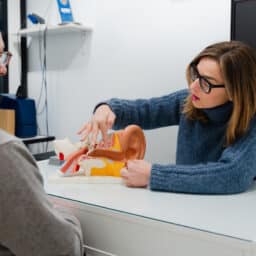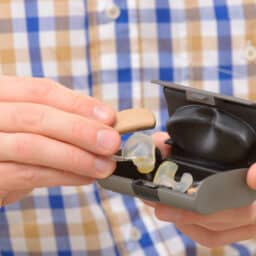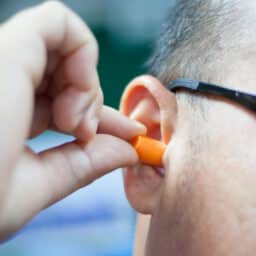Recognizing and Managing Common Ear Issues to Protect Your Hearing

When you think of hearing loss causes, aging and noise exposure are probably the first to mind. While these are some of the most common causes, there are also several ear conditions that can temporarily or permanently interrupt your hearing. Let’s take a look at a few of these conditions, how they’re managed and how…
Celebrate Valentine’s Day With the Help of Hearing Aids

When you think of top relationship advice, getting hearing aids probably isn’t the first thing to come to mind. While they might not seem like the most romantic topic, these tiny devices speak to a well-known relationship adage: communication is the foundation of a healthy relationship. In celebration of Valentine’s Day, take a look at…
When Should You See an Audiologist? Four Signs to Watch For

Your hearing plays a vital role in connecting you to the world around you. Yet, many people neglect their hearing health until it becomes a serious concern. An audiologist—a healthcare professional specializing in hearing and balance disorders—can help you protect and improve your auditory well-being. Let’s take a look at what an audiology appointment entails…
How To Protect Your Hearing This New Year’s Eve

It’s almost time to celebrate the new year! New Year’s celebrations tend to include a lot of loud music, fun times with your friends and, often, some fireworks. As you find the right outfit and settle on your New Year’s plans, take some time to look at our list of ways to protect your ears…
Can I Sleep, Shower And Exercise While Wearing Hearing Aids?

An estimated 28.8 million U.S. adults could benefit from the clear communication hearing aids have to offer. One of the most common questions new hearing aid wearers have is when to wear them and when to take them off. Let’s dive into three key scenarios people often ask about: sleeping, showering and exercising. Sleeping It’s…
Hearing-Friendly Thanksgiving: Tips for Managing Noise at Large Gatherings

From the moment you start boiling water for mashed potatoes to when you’re wrangling kids and grandkids for an after-dinner movie, Thanksgiving is a noisy event. This constant noise can make the holiday a challenging event for people with hearing loss. But don’t worry. There are a few ways you can make your Thanksgiving gatherings…
How Will Hearing Aids Fit Into My Life?

If you’re considering hearing aids, you’re not alone—approximately 28.8 million U.S. adults could benefit from these remarkable devices. When thinking about diving into hearing treatment, many people worry about how it will affect their daily life. Let’s take a look at what you can expect from your first pair of hearing aids to help you…
Recognizing Teen Hearing Loss: Key Signs You Shouldn’t Ignore

Hearing loss isn’t just a concern for older adults; it can also impact teenagers. With nearly 5.2 million children and teens experiencing noise-related hearing loss, it’s essential to stay alert to the warning signs. The constant exposure to loud music through headphones, noisy environments like concerts and even everyday factors like ear infections or physical…
Protecting Your Hearing After Hearing Loss: Why It Still Matters

Finding out you have hearing loss can feel nerve-wracking, and it often feels easy to give up on hearing protection. It’s important to remember that even after being diagnosed with hearing loss, protecting the hearing you have left is vital. How Does Hearing Loss Affect You? Unnecessary exposure to loud sounds can worsen your hearing…
Why You Shouldn’t Hesitate to Embrace Hearing Aids

Hearing loss is a widespread condition affecting more than 1.5 billion people worldwide. Despite its prevalence, it takes an average of seven years from when a patient suspects hearing loss to when they seek treatment. Why Do Patients Wait To Seek Treatment? Hearing aids are one of the most common hearing loss treatment options. These…